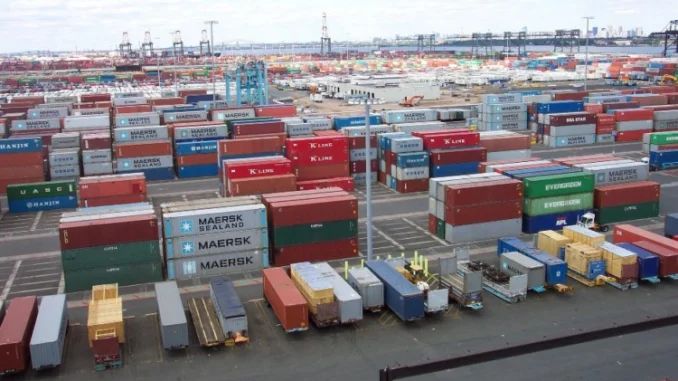
With the objective of expediting the export cargo flow across Nigerian ports, the Nigerian Ports Authority (NPA) has released a new order. Terminal operators will not be permitted to do comprehensive inspections of export containers at each gate after May 1st, 2024. Despite being conducted with security and safety in mind, these inspections may cause delays and bottlenecks. The NPA thinks that by centralizing these screening tasks at the port entry, a more effective procedure would be created, guaranteeing a smoother export cargo flow onto departing vessels.
Concerns over delays brought on by these internal screening processes prompted this decision. According to the NPA, this simplification will enable a “smooth transfer of export goods aboard ocean-going ships.” The NPA seeks to speed up the entire export process by removing bottlenecks and centralizing screening operations at the port gate. By doing this, export vehicles will be subject to a single, thorough examination when they reach the port, obviating the need for separate inspections at different ports. It is anticipated that this simplified process would greatly cut wait times and increase the predictability of export schedules, enabling exporters to more efficiently organize their logistics.”
Concentrate on Trade Facilitation and Efficiency
The NPA Director underlined how critical it is to remove obstacles from the flow of export cargo. This is the goal of the new strategy, which centers screening at the main port entrance. By doing this, it will be made sure that export trucks only go through one inspection when they enter the port, removing the need for further inspections at different ports.
The Nigerian Ports Authority (NPA) regards this new move as a major step in the direction of trade facilitation and easier commercial transactions at Nigerian seaports. This dedication to effective export procedures is further demonstrated by the creation of specific Export Processing Terminals (EPTs).
Anticipated Advantages

Delays Will Be Cut Down: Export trucks should have much shorter wait times thanks to centralized screening at the port entry, which will speed up cargo movement and increase delivery schedule predictability. Businesses will thus see a decrease in their overall export expenses as a result of the decreased demurrage fees linked to longer port stays. Because they can count on more reliable transport times, exporters may also profit from a more efficient planning process.
Enhanced Efficiency: By centralizing the screening process at the port entry, it may be streamlined to reduce duplication of work and enhance port operations in general. In the past, export vehicles would go through several inspections at several ports, each with a little different process. Delays and misunderstanding may result from this.
The NPA wants to build a more effective system by combining screening procedures into a single, uniform process at the port entrance. In addition to accelerating the flow of export goods, this will free up important resources at particular ports so they may concentrate on their primary responsibilities, which include cargo handling and storage.
Improved Trade Facilitation: The NPA’s initiatives aim to make the business climate friendlier and more conducive to higher trade volumes. Businesses are finding it simpler and more productive to export their goods thanks to the NPA’s simplification of export procedures, reduction of delays, and improvement of predictability. Numerous advantageous effects, such as increased investment, the creation of jobs, and economic growth, may result from this.
Furthermore, Nigerian exporters may be able to access new markets if their country’s exports are more competitive on the international stage thanks to an effective export industry.
Gazing Forward
The NPA will keep a close eye on the new directive’s implementation to evaluate how well it reduces delays and boosts overall export efficiency. Participants in the Nigerian export industry will be closely monitoring how this policy shift affects their day-to-day activities.

Be the first to comment